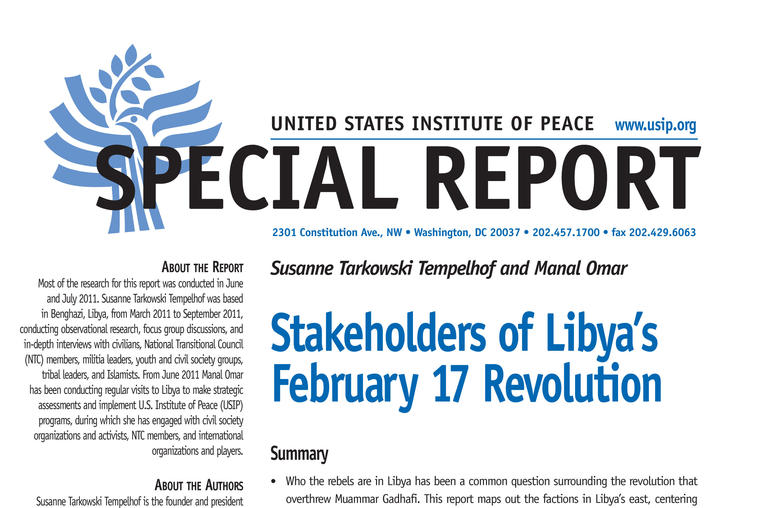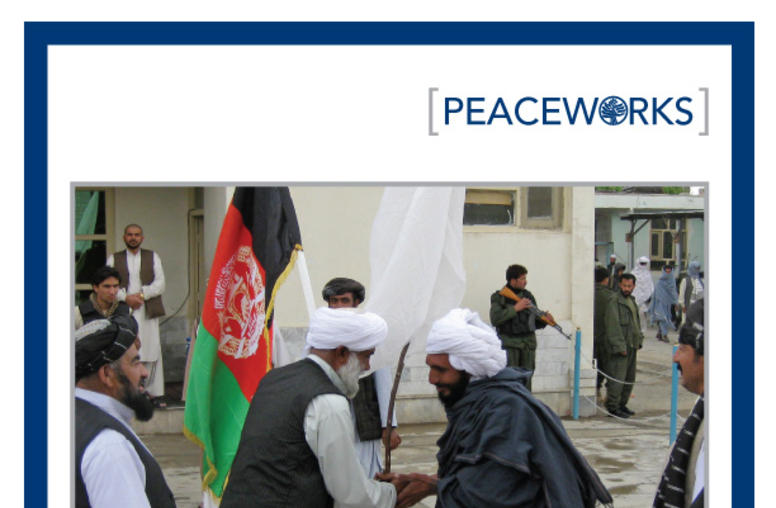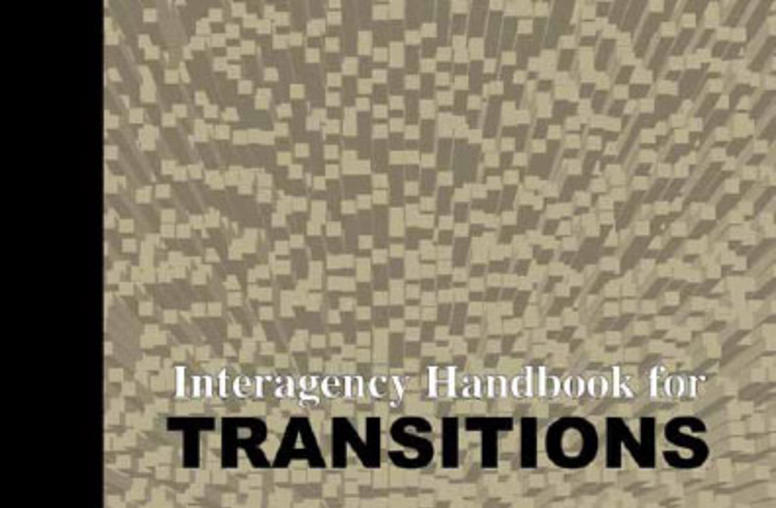Publications
Articles, publications, books, tools and multimedia features from the U.S. Institute of Peace provide the latest news, analysis, research findings, practitioner guides and reports, all related to the conflict zones and issues that are at the center of the Institute’s work to prevent and reduce violent conflict.

Stakeholders of Libya’s February 17 Revolution
United in revolution, Libya’s various rebel groups have high expectations of a new government but are divided on many fronts. Understanding who these factions are and the tensions among them is key to finding common ground on how to rebuild Libya’s political process.

Beyond Power-sharing: Institutional Options for an Afghan Peace Process
Much of the debate about a peace settlement with insurgents in Afghanistan focuses only on political or territorial power sharing. But a successful peace process will require a broader array of measures that allow conflicting parties to share influence and balance that influence with more roles for noncombatants, civilian political actors, and vulnerable groups.
Assistant Secretary of State Johnnie Carson Explains the U.S. Military Mission in Uganda
Assistant Secretary of State Johnnie Carson tells a USIP audience at an event in December about the deployment of American military forces to Uganda to pursue the Josephy Kony and the Lord's Resistance Army.
Building Peace and a Partnership with the Military
We asked USIP leaders, from board members to senior staff and experts to explain the effect that events around the world and here at home will have on the U.S. and the contributions the Institute can and does make during a time of tremendous challenge – and opportunity. USIP Chief of Staff Retired Col. Paul Hughes served nearly 30 years on active duty with the Army.
Elections Could Plunge the Democratic Republic of Congo into Violent Conflict
Congolese went to the polls on Nov. 28 to elect a president and 500 members of parliament in an atmosphere of uncertainty, mistrust and violent unrest. Raymond Gilpin, director of USIP’s Sustainable Economies Center of Innovation examines the elections and their implications.

USIP and the U.S. Army Team Up For How-To Guide on Stability Operations
The United States Institute of Peace, the Simons Center for the Study of Interagency Cooperation and the U.S. Army Combined Arms Center got together to discuss challenges and lessons learned from more than a decade of stability operations.
Egypt in the Eye of a Democratic Storm
Daniel Brumberg, a senior adviser in USIP’s Center for Conflict Management, analyzes the implications of Egypt’s ongoing parliamentary elections, which began this week.
"Rewiring Regional Security" Released at USIP Gathering
Security experts gathered at the United States Institute of Peace (USIP) on Dec. 1 to address the question of who—amid rapid global change--has the responsibility, will and capacity to provide security in a variety of conflicts and problems around the world. The event marked the release of Rewiring Regional Security in a Fragmented World, a 20-chapter volume drawing on contributions from numerous security specialists.
Afghan Peace Requires ‘Will and Ideas’
Doubts about mounting a successful peace process in Afghanistan are running high as 2011 nears an end. However, hopes for it have not been extinguished and considerable work needs to be done on laying out what a viable process would include and how it might proceed, according to several Afghanistan specialists appearing at an event held at the United States Institute of Peace (USIP) on Nov. 29.
Rep. Donna Edwards: Invest in Women to Rebuild Haiti
Rep. Donna Edwards, Democrat of Maryland, and others spoke at USIP on the importance of rebuilding Haiti and the role women should play.